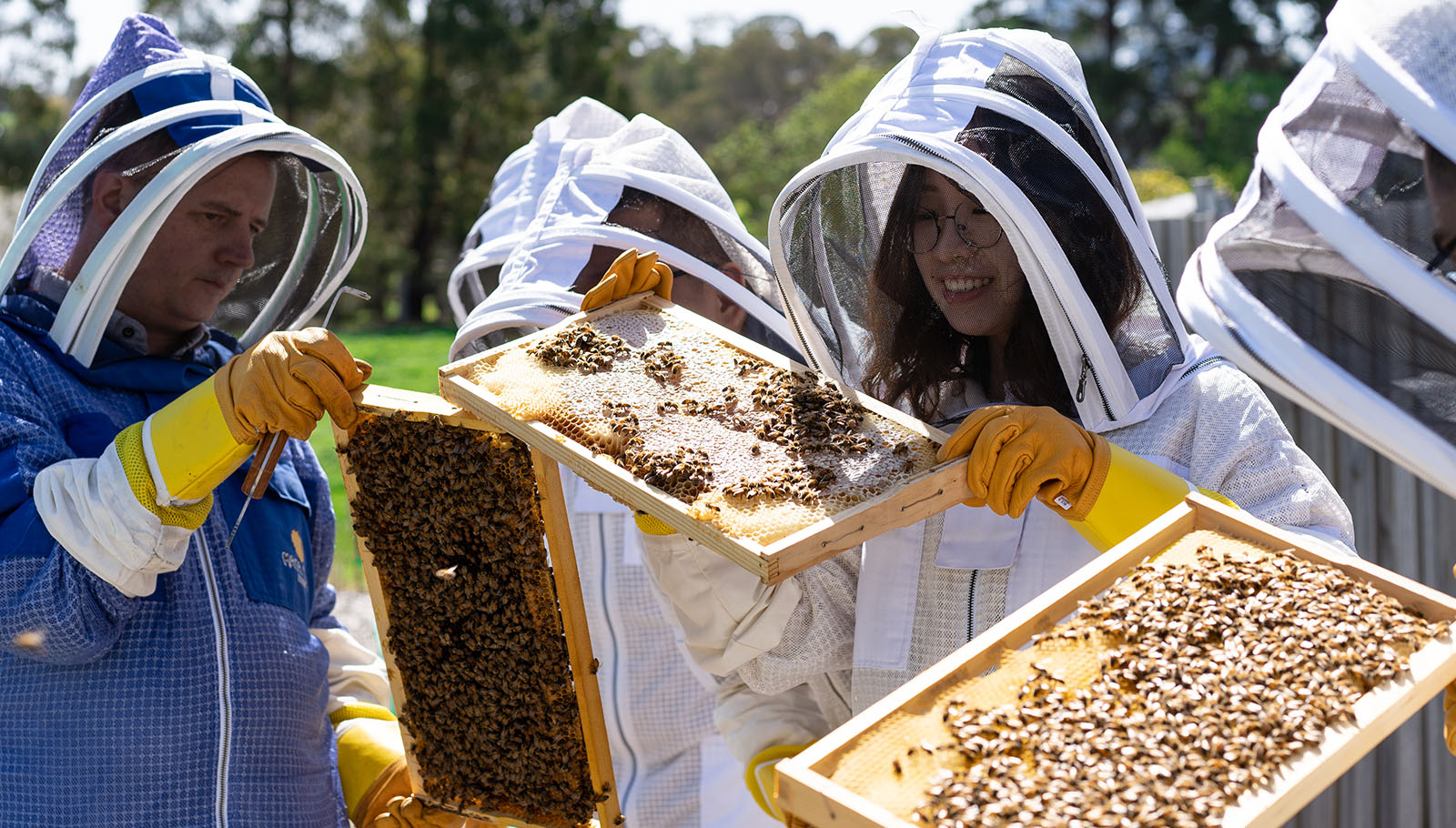Beehive Inspections: How To Inspect Your Hive
Inspecting your Hive is one of the most critical yet exciting and magical aspects of being a Beekeeper. But if you’re still a beginner, it can be a daunting task,...
Inspecting your Hive is one of the most critical yet exciting and magical aspects of being a Beekeeper. But if you’re still a beginner, it can be a daunting task, especially the first few times you do it.
You might be asking yourself questions like, ‘How often should I be inspecting my hive?’, ‘What should I be looking for?’ or ‘How do I know if my Hive is healthy?’
Below you’ll find answers to the most common questions I get asked about inspecting a Bee Hive.

How often should beehives be inspected?
Opinions vary widely on this topic!
In my professional opinion, you should be aiming to inspect ‘as often as necessary, but as seldom as possible.’ What do I mean by that? As a general rule of thumb, inspecting approximately 4 to 6 times per year is a good number. At a bare minimum, you’ll need to inspect at least twice per year.
Other Beekeepers recommend inspecting as much as once per week and I would highly caution against that. Why? Well for starters you’re going to make your bees mad! They don’t like being disturbed, and coming into their home every week uninvited is not going to be welcomed warmly. Every time you inspect their hive you set the colony back a day or two, and it takes them quite some time to recover so constantly inspecting your hive is never a good thing.
It’s important to have a purpose for conducting a Hive Inspection. What are you looking for exactly? Common reasons to inspect include; checking for disease or the presense of other pests that could be potential biosecurity hazards, making sure your Queen is present and active or checking food supplies and honey stores.
Remember: Always have a reason for inspecting and do it as often as necessary but as seldom as possible.
When is the best time to inspect a beehive?
The best time to inspect your hive is on a warm and sunny day between 11am and 2pm. You want your bees to be out foraging so you’re less of a disturbance to them. It’s important to ensure the weather is warm, as bees don’t cope well in the cold and you could unintentionally do damage to your colony by opening the lid on cold or windy days.
How do you inspect a hive? What do you need?
It’s important to keep a record whenever you conduct a Hive Inspection. Having a written record (and photos preferably) will help to jog your memory between inspections and help you to notice the trends or patterns going on inside your hive.
That way, if any problems arise you will be able to catch them early enough and take the appropriate action to ensure your hive remains healthy and continues to thrive.
I may be stating the obvious here, but always make sure you have the appropriate protective wear on as well as a smoker and hive tool on hand as you conduct your inspection.
What should you look for when inspecting a Bee Hive?
There are several elements you should be looking at when inspecting your hive. That being said, as I mentioned before, ‘Know Your Purpose’ for inspecting. It’s easy to get caught up in the magic, but if you try and look at everything in a single inspection, you’ll risk making your bees angry. They don’t want you rummaging around in their home all day long.
The most common things to look for when inspecting include;
- Identifying the Queen and making sure she is active and laying eggs
- Checking how much room the bees have, do you need to add another box or super?
- Checking honey and pollen stores
- Checking for any signs of disease or pests
- Taking note of the general hive activity ie: Bee temperament, activity, hive odour etc
When should you not open a beehive?
Never open your hive during Winter or on particularly cold or windy days. You want to make sure conditions are mild and preferably sunny. The nest temperature needs to remain warm so opening the hive on a particularly cold day can do a lot of damage and potentially be fatal to your colony!
Other Tips
- Always stay well hydrated, wearing a Bee Suit in the middle of the day can get hot fast!
- Try and reduce your physical stress before you conduct any Hive Inspections
- Avoid wearing any strong perfumes or aftershaves, a bees sense of smell is much more advanced than ours!
If you’re a Beginner Beekeeper looking to expand your knowledge base and gain fundamental skills join us in Beekeeping Apprentice! You’ll be a confident Beekeeper in no time.



